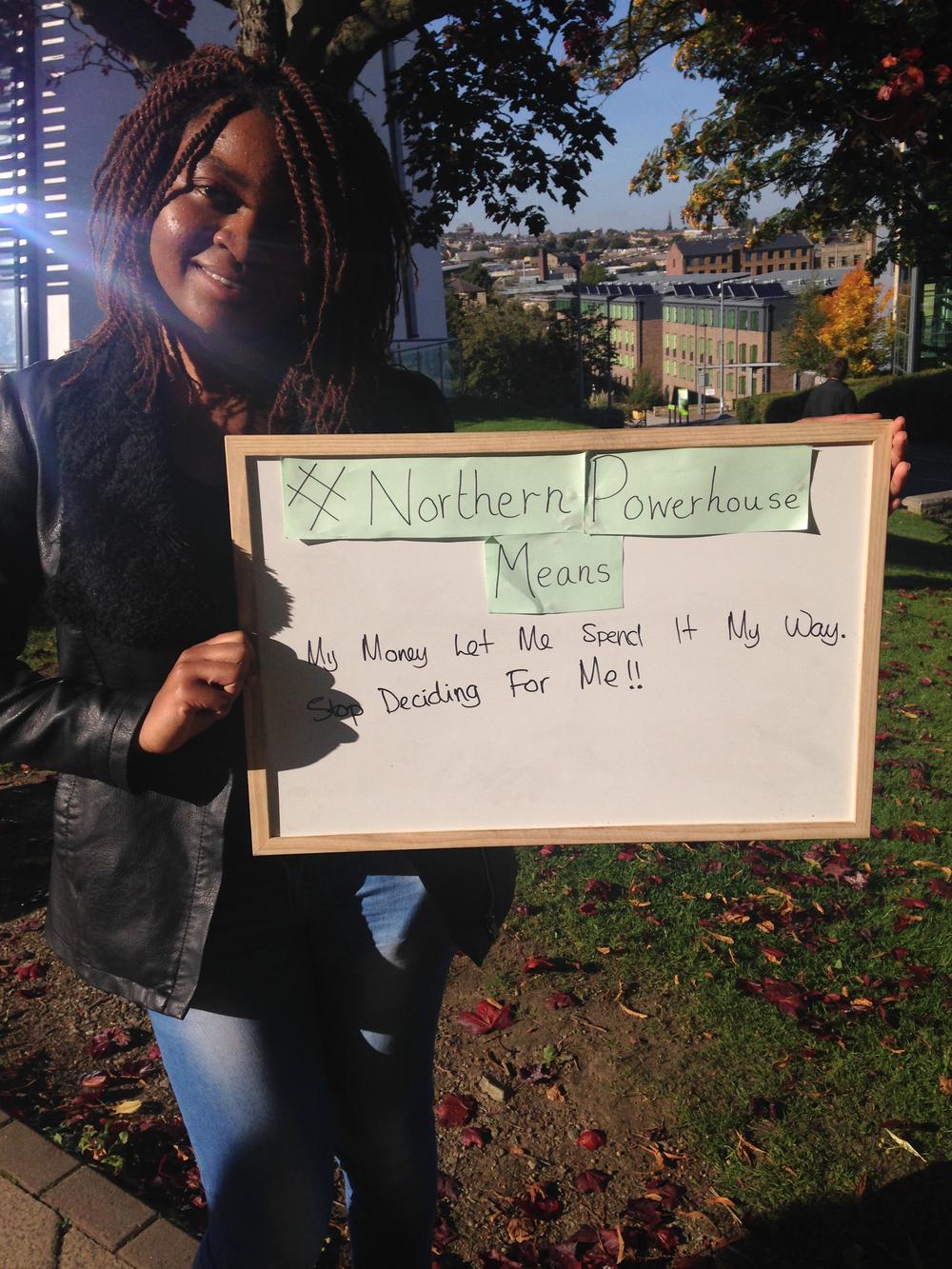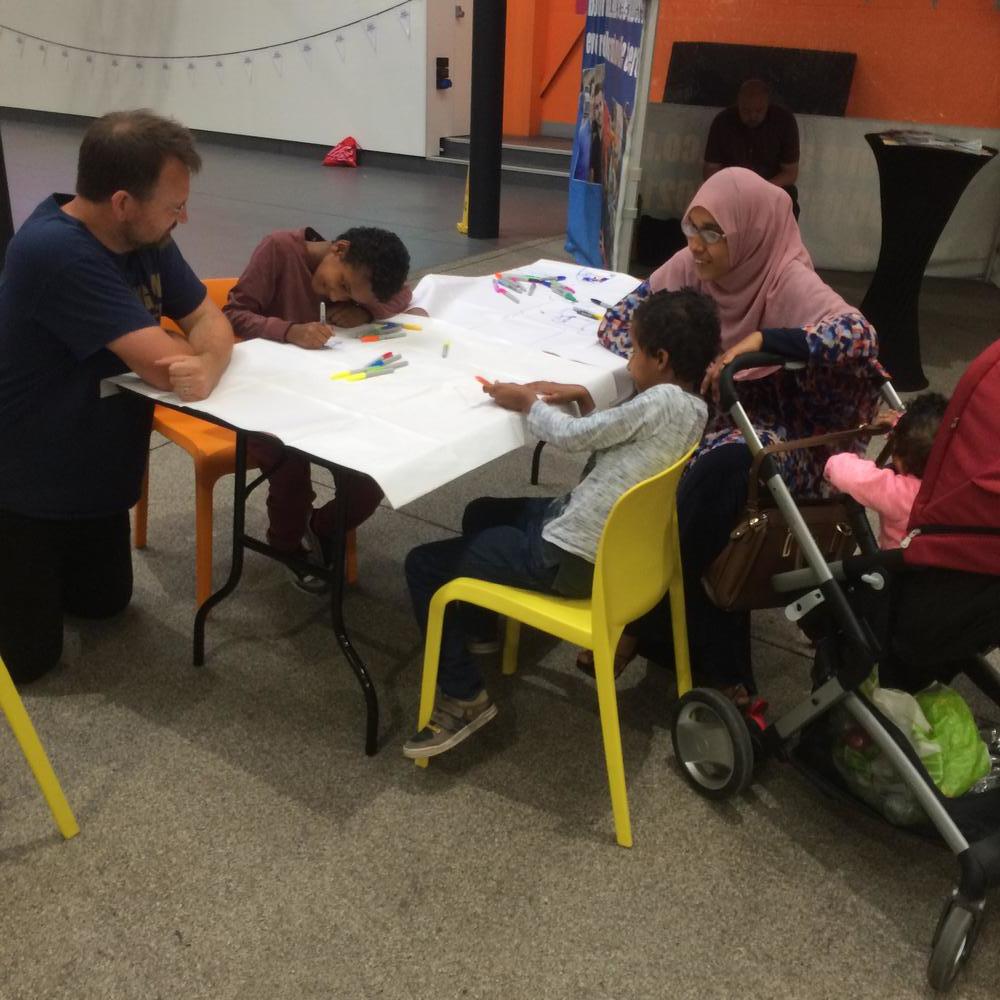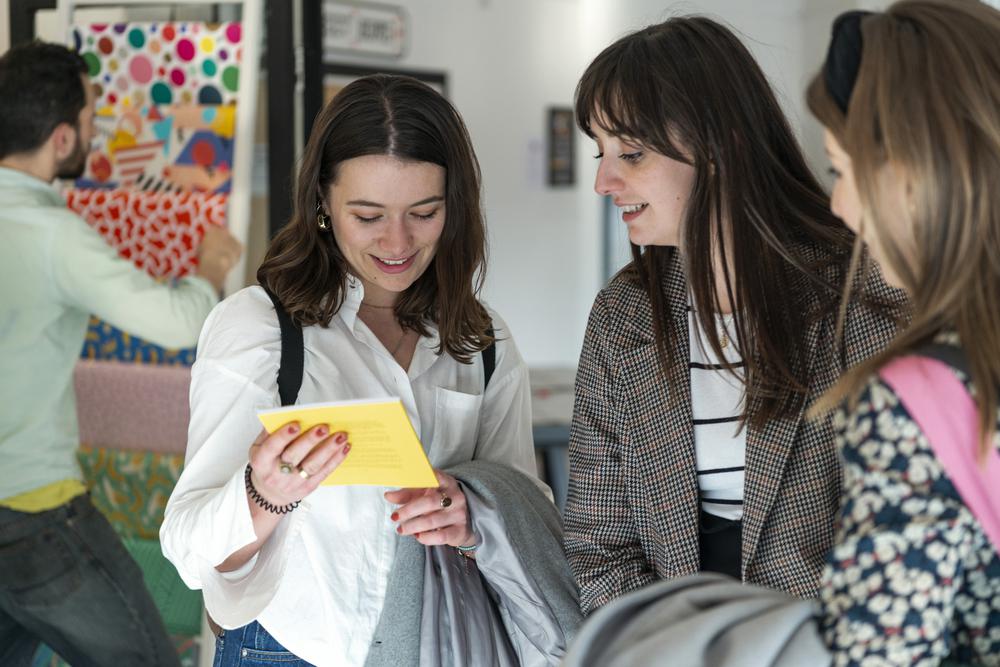Our Story
Same Skies started in Spring 2015 with an email from Ian Martin to a group of people in West Yorkshire asking if anyone would be interested in getting together and talking about the inspiring, broadly-based political engagement that had happened in Scotland during the independence referendum.
Could something similar happen in our region?
A handful of people from Ian's list were enthusiastic enough to make the time to get together in person, and over the summer we started meeting up in Leeds and Bradford.
We talked about our own experiences of living and working in West Yorkshire, and whether our voices and experiences, and enthusiasm as citizens, were reflected in the national, or even local, political conversation.
At the same time, the first city-region devolution deals were being announced, initiated by the Conservative central government, and beginning with Manchester in November 2014.

From our discussions, three very broad principles emerged to get us started.
We were enthusiastic about political responsibility coming back to our region.
The city-region devolution deals are often described as "flawed", but to us they felt like an opportunity to build on, no matter how imperfect, and regardless of where they were initiated. If we wanted devolution to be done better, it was our responsibility as citizens to grasp the opportunity and transform it, not stand on the sidelines moaning.
We decided to talk about regional democracy not devolution.
This was based on the experience of organising and taking part in previous public conversations in which the term devolution and its associations quickly led down energy-sapping dead ends.
We needed a new phrase that opened up the possibilities.
Based on what we've learned since 2015, we've written this description of what we mean by regional democracy.
We wanted to live in a regional democracy, not be subject to devolution, and a regional democracy is led by its citizens. "Where are the people?" we asked.
Then, as now, we think this is a consciousness raising moment for regional democracy. Taking inspiration from Paulo Freire's idea of conscientization has helped us understand that better as we have gone along.
In 2015, the first thing we could usefully do was just to go out and create an opportunity for more people to talk to each other about their experiences in the same way we had started.
To put this into action, we decided to organise an open space conference in Manningham, Bradford in November 2015.
You can read more about how and why we decided to start in that way, and see some of the very interesting additional creative conscientization that Leila Taleb, one of the original group, did in advance.
It wasn't until after the Manningham event that we choose the name 'We Share The Same Skies' (originally the title of a song by Wakefield band The Cribs) and over time, this became shortened to 'Same Skies', which seems to capture the sense of a shared place while offering a welcome to anyone who currently lives in the region, no matter where they or their relatives were born.
We defined ourselves as a network of citizens, and our organisational structure is still that as much as anything else. Lots of people have come in and out of the network as their circumstances allow, and we welcome anyone who would like to get involved.
Having chosen a name, we set up a blog and invited people to write hopeful essays about the future of West Yorkshire. We published pieces on local public banking, learning from the Rojava region of Syria and welcoming migrants to Leeds. This approach later developed into commissioning essays for a book.

Beginning with the open space event, we've always tried to go to where people are, rather than expect them to come to us.
While we were looking for new ways to do that, West Yorkshire artist Amy Hirst came to one of our meetings and from Amy's contribution to that conversation we developed the idea of visiting markets.
We take paper and felt tip pens, set up some tables covered with paper tablecloths, and ask people to draw maps of their own neighbourhoods, especially the good stuff, and to talk about their hopes for the future of our region.
So far we've been to markets in Keighley, Bradford, Castleford, Halifax, Leeds, and Huddersfield.
On the strength of the blog and our work up to that point, we were very kindly given funding by Seedbed to publish What Kind of Region Do We Want to Live In? a book of ideas about the future of West Yorkshire by 15 writers based here or with strong regional connections.
With all credit going to the writers and the fantastic design and typesetting by Leeds-based designer Eve Warren, copies of the book sell at a steady rate to a general audience and can be bought from two West Yorkshire bookshops, Colours May Vary in Leeds and The Book Corner in Halifax.

Given the enthusiasm for the book and the ideas in it, we decided to set up a regional democracy think tank for West Yorkshire to look for new ways to influence what happens in our region, and to shape the relationship between our region and the national government in what is acknowledged to be the most centralised established democracy in the world.
You can read the challenges we've set ourselves.
We hope that the think tank will be a structure that can combine the creative, citizen-led activity of our first five years with the research and practice expertise of West Yorkshire's universities, public sector, business and civil society organisations.
The founders and current members of the think tank and the original network are all listed here, and if you would like to get involved please do drop us a line.
Sharing Umbrellas: My Experience of a West Yorkshire Walk
I arrived in Harehills on a rainy Sunday not knowing what to expect from the West Yorkshire Walk. I had read online that the purpose …
Devolution as a Pressure Relief Valve for Extremist Politics
We are living in the most globally frictional political atmosphere since World War II. Despite some recognition of diversity by businesses and academia, the UK …
Please Join Us for Listening to West Yorkshire, April 7, 6pm-7pm
On May 6th there is an election for a Mayor of West Yorkshire. The Mayor's position covers everywhere in the Bradford, Calderdale, Kirklees, Leeds and …
